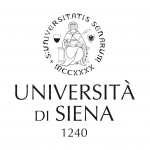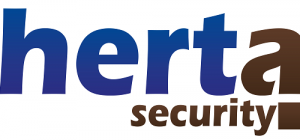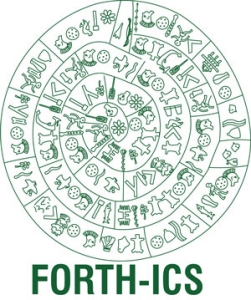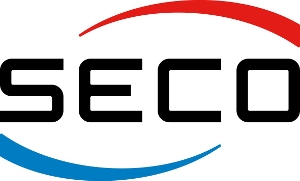 The University of Siena – Department of Information Engineering and Mathematical Science (DIISM) has been involved in the ERA (Embedded Reconfigurable Architecture) FP7 STREP project, in the TERAFLUX FP7 FET-IP project, and in numerous research clusters and management activities of HiPEAC since its inception. Prof. Giorgi had been involved in Dataflow research since 1999, when he started his experience in the USA developing part of the Scheduled Dataflow Architecture. Still Dataflow and FPGAs continues to deliver many of his original promises and offers lots of potential for current Embedded System challenges (like energy efficiency) to be addressed.
The University of Siena – Department of Information Engineering and Mathematical Science (DIISM) has been involved in the ERA (Embedded Reconfigurable Architecture) FP7 STREP project, in the TERAFLUX FP7 FET-IP project, and in numerous research clusters and management activities of HiPEAC since its inception. Prof. Giorgi had been involved in Dataflow research since 1999, when he started his experience in the USA developing part of the Scheduled Dataflow Architecture. Still Dataflow and FPGAs continues to deliver many of his original promises and offers lots of potential for current Embedded System challenges (like energy efficiency) to be addressed.
The AXIOM project represents a great opportunity to make a strongly innovative change ‒ still based on solid pillars ‒ in the landscape of next generation supercomputer systems, together with leading companies with strong stakes in emerging cyber-physical computers. The University of Siena will also have a key role in creating an evaluation platform based on heterogeneous components that will serve itself as a next generation computing platform for the development of new instruments and simulation tools.
The Department of Cognitive Sciences will generate a strong synergy on Cognitive (multi-disciplinary) aspects (DISPOC is also operating in the same building as DIISM). Prof. Rizzo is continuously creating cyber- physical designs for a vast variety of digital scenarios of the future. His expertise area is called Interaction Design. This project will represent a unique opportunity to integrate knowledge in the field of cognitive science with several strong ICT actors across Europe.
The Barcelona Supercomputing Center![]() – Centro Nacional de Supercomputacion (BSC-CNS) serves as the National Supercomputing Facility in Spain. Computer science research at BSC-CNS focuses on building upon currently available hardware and software technologies, and adapting them to make efficient use of supercomputing infrastructure. BSC searches for execution environments and programming models that can be adopted by the users of our machines, especially if they facilitate the access to High-Performance Computing for them. In this line, BSC is highly motivated in the project, to obtain an execution environment that can be used on a vast variety of energy efficient platforms.
– Centro Nacional de Supercomputacion (BSC-CNS) serves as the National Supercomputing Facility in Spain. Computer science research at BSC-CNS focuses on building upon currently available hardware and software technologies, and adapting them to make efficient use of supercomputing infrastructure. BSC searches for execution environments and programming models that can be adopted by the users of our machines, especially if they facilitate the access to High-Performance Computing for them. In this line, BSC is highly motivated in the project, to obtain an execution environment that can be used on a vast variety of energy efficient platforms.
Research-wise, BSC is interested in determining the benefits of using FPGAs in production environments. It is a research challenge to merge the OmpSs programming model developed by BSC with the FPGA engines. This will allow us to determine the benefits of using both approaches ‒ software and hardware ‒ to get the best of each, and support its adoption by our users on their own applications.
Herta Security S. L. offers innovative products that leverage parallel multi-core architectures for increasing the throughput and user experience of a wide range of security applications. With the emergence of 4K and ultra-high definition surveillance cameras, fine-grained parallelization of biometric algorithms has never been as important as it is now. The modular approach explored by AXIOM is a suitable mechanism for addressing the increasing demand of computing performance in scenarios such as massively centralized surveillance and forensic video search.
offers innovative products that leverage parallel multi-core architectures for increasing the throughput and user experience of a wide range of security applications. With the emergence of 4K and ultra-high definition surveillance cameras, fine-grained parallelization of biometric algorithms has never been as important as it is now. The modular approach explored by AXIOM is a suitable mechanism for addressing the increasing demand of computing performance in scenarios such as massively centralized surveillance and forensic video search.
Evidence Srl is a software company very active in the open-source community. It is among the companies who have collaborated to the official Linux kernel and its real-time CPU scheduler has been included in the latest (3.14) Linux kernel. Moreover, Evidence Srl is also known world-wide for the design and development of the first open-source RTOS certified for automotive (i.e., Erika Enterprise).
is a software company very active in the open-source community. It is among the companies who have collaborated to the official Linux kernel and its real-time CPU scheduler has been included in the latest (3.14) Linux kernel. Moreover, Evidence Srl is also known world-wide for the design and development of the first open-source RTOS certified for automotive (i.e., Erika Enterprise).
Evidence is very interested in enforcing its international position of a software company specialized in Linux and in open-source software in general. The AXIOM project will give the company the strategic opportunity of reaching this objective by designing and developing the ambitious novel variants of Distributed Shared Memory mechanisms which will be then released as open-source software to the whole Linux community. This increased popularity of Evidence Srl in the international open-source context will allow the company to increase its consulting services across Europe.
 FORTH-ICS has an extensive track record of experimental research and prototype building in the computer architecture and interconnect areas. The latest Formic prototype is related to the AXIOM effort in that it utilized FPGA boards and used a custom interconnect structure. FORTH-ICS will build on its accumulated experience and investigate advanced interconnect structures for efficient (In terms of speed and power/energy) communication, and the proper acceleration support for the OmpSs programming model.
FORTH-ICS has an extensive track record of experimental research and prototype building in the computer architecture and interconnect areas. The latest Formic prototype is related to the AXIOM effort in that it utilized FPGA boards and used a custom interconnect structure. FORTH-ICS will build on its accumulated experience and investigate advanced interconnect structures for efficient (In terms of speed and power/energy) communication, and the proper acceleration support for the OmpSs programming model.
SECO Srl is interested to interconnect with actors from the research and business community in the field of ICT and its application areas (as it takes place within the AXIOM context). SECO mission is to provide innovation management, business modeling, business planning and exploitation services and as such contribute to the valorization and market uptake of prominent ICT related research results; and mostly to enrich company’s knowledge and potentially its service portfolio by investigating new ICT market segments, alternative business models and exploitation paths for the AXIOM board in several applications areas of focus (i.e. for Embedded Computing applications).
is interested to interconnect with actors from the research and business community in the field of ICT and its application areas (as it takes place within the AXIOM context). SECO mission is to provide innovation management, business modeling, business planning and exploitation services and as such contribute to the valorization and market uptake of prominent ICT related research results; and mostly to enrich company’s knowledge and potentially its service portfolio by investigating new ICT market segments, alternative business models and exploitation paths for the AXIOM board in several applications areas of focus (i.e. for Embedded Computing applications).
VIMAR Srl offers innovative products in the field of home and building automation. Research in this arena is a key element of a fast changing environment that is challenged and stimulated by worldwide consumer electronics companies entering in the competition. Integration with multimedia devices and data flows, openness to IP protocols, processing multiple flow of data are important elements, as well as power management and reduction of power consumption of the devices. The participation at the AXIOM project enables exploration of new possibilities in those areas.
offers innovative products in the field of home and building automation. Research in this arena is a key element of a fast changing environment that is challenged and stimulated by worldwide consumer electronics companies entering in the competition. Integration with multimedia devices and data flows, openness to IP protocols, processing multiple flow of data are important elements, as well as power management and reduction of power consumption of the devices. The participation at the AXIOM project enables exploration of new possibilities in those areas.